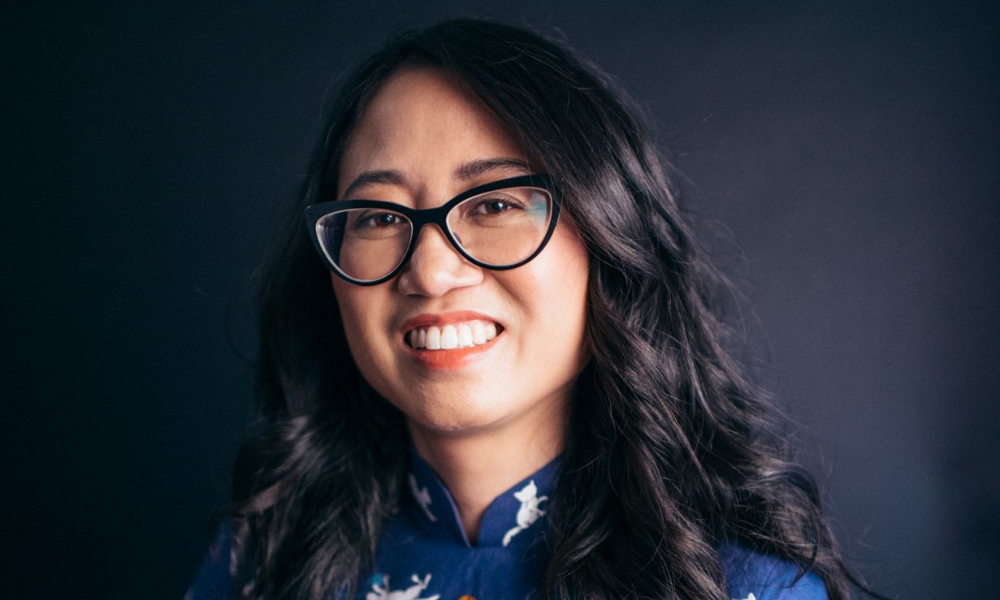Liew examines the impact of stateless people seeking legal status in her new book, Dandelion

Immigration lawyer and University of Ottawa law professor Jamie Chai Yun Liew have spent most of her time as a scholar focusing on individual statelessness, and her father’s previous status and migration to Canada remain her inspiration.
Liew’s father migrated because he was born stateless in Brunei in Southeast Asia, and she says his journey to Canada was because of necessity. When Liew was younger, she found her father’s previous stateless status unusual but saw more statelessness incidences when she began her legal career in immigration law.
Liew desired to work in human rights, but after attending the University of Ottawa Law School and clerking at the federal courts, she became acquainted with immigration law.
“I felt like this area of law was not only interesting and challenging, but I could see the impact it would have on people’s lives immediately. It gave a good mix of doing things on the ground with individuals and having opportunities to engage with law and policy.”
As she grew in her career, Liew says she saw many critiques and concerns about the immigration law system and ultimately decided to become an academic to explore the practice area.
She obtained her LLM in the United States and returned to the University of Ottawa as a faculty member, researching and teaching immigration and refugee law. “As a scholar, I started seeing people talk about statelessness more.”
Immigration law is unlike other law practice areas because it is constantly changing, and Liew says much of her work now involves examining, critiquing, and responding to the continually evolving area of immigration law.
“The life story of my parent’s immigration to Canada informs how I work with clients and is an inspiration to me and my work,” she says.
Liew examines the emotional and psychological impact of stateless people seeking legal status and how the public treat migrants or racialized persons in her new book, Dandelion.
Dandelion focuses on a woman’s journey to uncovering her mother’s experience as a Canadian immigrant, which takes her on a quest to Southeast Asia to learn why her mother left her as a child.
“This book explores the themes of citizenship, statelessness, belonging and what it means to be a racialized mother in Canadian society.”
Liew says she wrote Dandelion during her fieldwork on statelessness in Southeast Asia. “Dandelion is a product of the emotions, narratives and stories that I heard during my time as a researcher and some personal touches from the intergenerational trauma of watching my parents live in Canada as migrants.”
“I interviewed several stateless persons, advocates, NGOs, and my family members, and there were a lot of material in the stories that I couldn’t use in my academic writing.”
Liew says she turned to creative writing to explore the emotional and psychological themes of the absence of legal status and how it informs the ways communities treat migrants and racialized people.
“The creative writing processes were quite cathartic and liberating in allowing me to explore those themes.”
The book pays homage to Liew’s family story, but she says it is fictional and aims to invite people into the Canadian immigrant experience, what other migrants might feel in Canadian society and the treatments they receive.
Liew says other professionals have questioned her expertise in teaching a course or taking a particular case several times. For example, when she was working at the Immigration Refugee Board, a board member asked in front of her client if she was a lawyer.
Many racialized lawyers experience a similar issue where they are misidentified as a junior or deemed not experienced enough, and Liew says they must call out professionals who question their expertise because they have earned their degree.
She says people often dismiss the hardship of travelling to another country but moving to another country without knowing the culture, language, and no guarantee of a job or income is significant.
Liew says watching her parents work hard and advocate for themselves taught her that nothing comes easy, and sometimes championing oneself is necessary to earn a place at the desired tables.
“Unfortunately, people like us must have a backbone and have to advocate for ourselves.”
Several university professors were instrumental in helping Liew’s legal career, and she says young lawyers need to realize that they are not alone and can ask questions and seek advice. “I feel very lucky that people reached out periodically in my career and were there for me when I was struggling.”
Liew is conscious of junior colleagues with similar experiences and says it is crucial to provide them with support and mentorship. “People like me need to remember our struggles and not dwell on them but ensure that we mentor and support our other colleagues who might be still experiencing those kinds of challenges.”
Liew is the co-author of "Immigration Law" with University of Victoria professor Donald Galloway. She and Dr. Amanda Cheong from the University of British Columbia recently received a grant from the Social Sciences and Humanities Research to research statelessness in Malaysia, which she says is significant because it provides resources to continue the work.
She hopes to engage with advocates, scholars and stateless persons in the region more deeply with the grant. “It is a meaningful achievement that a major funding agency recognizes that statelessness is an ongoing and persistent problem worth exploring and investigating.”










